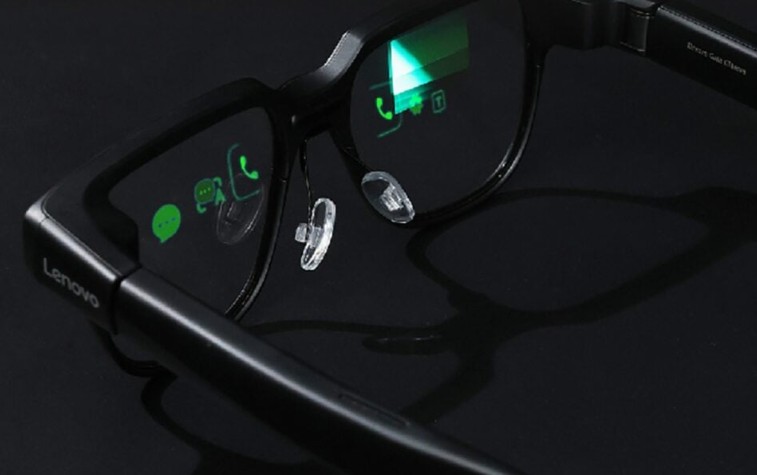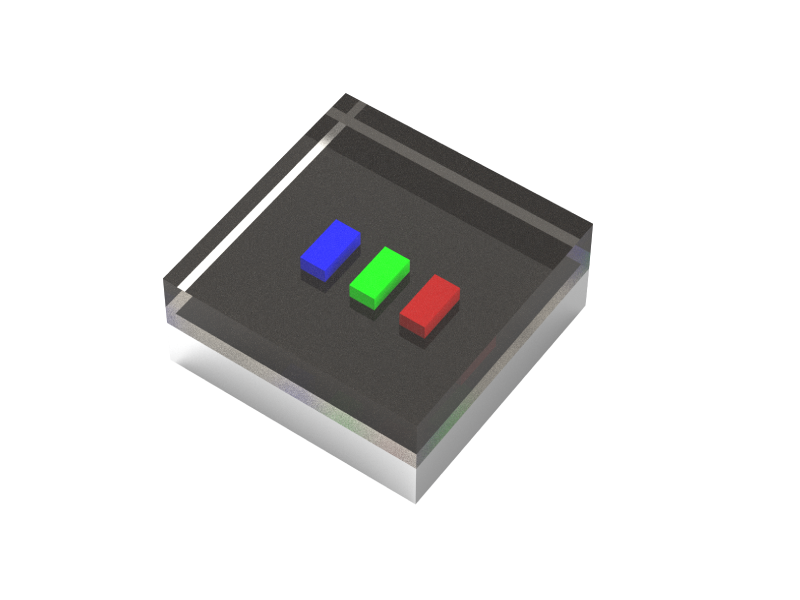Lenovo has officially entered the MicroLED AI glasses race with the launch of its new AI Glasses V1, marking the company’s latest move into the intelligent wearable space. According to ITHome, the glasses weigh just 38 grams, making them one of the lightest AI-powered eyewear devices on the market. The product officially launched in China on November 9 with a retail price of 3,999 yuan (approximately USD 550).
The launch underscores Lenovo’s ambition to redefine smart eyewear through the fusion of Micro LED display technology, AI voice functionality, and ergonomic design. However, the absence of a built-in camera—a feature now common among AI wearables—suggests Lenovo is prioritizing comfort and privacy over immersive visual capture.

At the heart of Lenovo’s new glasses is a MicroLED optical engine, combining Meta-Bounds’ resin diffraction waveguide with a monochrome Micro LED display. As reported by LEDinside, the display achieves peak brightness levels of up to 2,000 nits, delivering clear visibility even in strong ambient light.
The lenses, just 1.8 mm thick, allow users to switch between monocular and binocular display modes, offering flexibility for different applications—whether reading, working, or entertainment. With a 15 × 11 mm eye-tracking viewing area, Lenovo demonstrates how MicroLED AI glasses can balance image clarity, brightness, and lightweight design within a compact optical system.
The glasses also feature touch-sensitive temples, enabling users to swipe and tap to answer calls, check messages, or turn digital pages. Powered by Lenovo’s Tianxi intelligent assistant, the V1 supports AI voice commands, real-time translation, and hands-free operation.
According to ITHome, the glasses provide 8–10 hours of continuous translation and up to 250 hours of standby time—a strong indication of energy efficiency and practical usability. Yet as 9to5Google points out, the lack of a camera means users will miss out on functions like image recognition or photo capture, which have become signature features in many AI glasses models.

Lenovo’s announcement arrives as several manufacturers accelerate their push into MicroLED AI glasses. In October, Leyard opened preorders for its first Micro LED AR glasses. Around the same period, Waterfall unveiled AI glasses powered by a full-color Micro LED optical engine, while INMO launched its INMO GO3 AI smart glasses.
As highlighted by LEDinside, Micro LED technology is emerging as a foundational display solution for AR and AI wearables due to its superior brightness, contrast ratio, durability, and low power consumption. These qualities make it especially suitable for lightweight optical modules that must balance performance with long-term comfort.
Lenovo’s AI Glasses V1 may lack a camera, but its ultra-light 38-gram design, 2,000-nit Micro LED display, and AI-powered assistant show how far smart eyewear has evolved. Rather than aiming for full AR immersion, Lenovo seems focused on creating a practical, voice-controlled companion for productivity and everyday communication.
As more global and Chinese brands invest in MicroLED AI glasses, the convergence of AI, optics, and wearables will likely define the next stage of personal computing—one where visual clarity and intelligent interactivity are seamlessly integrated into a pair of glasses.
